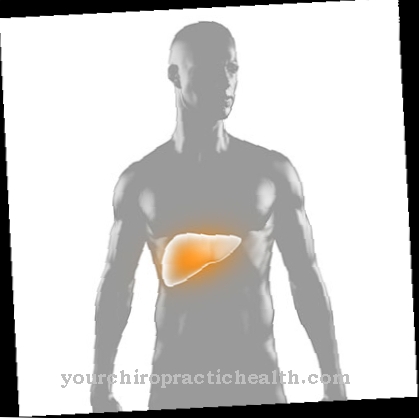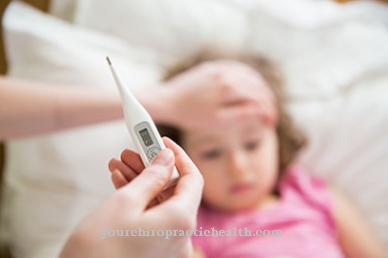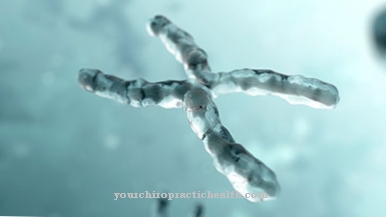The Latin technical term Precocious puberty translated means "premature puberty". This means the onset of puberty before the age of eight (for girls), for boys the onset of puberty before the age of nine.
What is precocious puberty?

© designua - stock.adobe.com
The diagnosis Precocious puberty occurs when the development of secondary sexual characteristics, such as a breast base or pubic hair, begins long before the usual age. Increased growth in length can also be observed in affected children.
As the reason for premature puberty can be a tumor of the liver, brain or thyroid gland, the growth of which affects hormone regulation, or premature puberty can trigger short stature in the affected person, premature puberty is considered pathological and should be treated.
causes
In order to be able to treat the disease, the pediatrician first investigates the causes of the early onset of pubertal development. A tumor can, for example, stimulate an overproduction of sex hormones by simulating the endocrine gland, so that puberty can be initiated early. It is also conceivable that the regulatory hormones of the sex hormones are not released in sufficient numbers.
This points to androgenital syndrome, a metabolic disease that requires regular hormone treatment. Premature puberty can also be genetic; In this case, treatment is nevertheless appropriate, as a premature growth spurt means that the affected person runs the risk that they will hardly grow any more later and thus only attain a very small body size.
Symptoms, ailments & signs
If children show signs of physical and mental development that are characteristic of puberty at a very early age, it could be precocious puberty. The key date for girls is the age of eight, for boys the age of nine - from this age onwards one no longer speaks of premature puberty. The progression of early puberty can be very rapid, but it can also be slow. Blemished skin or even acne, oily hair, vaginal discharge, or menstruating before the age of eight should alert parents. A change in personality can also indicate an early onset of puberty. Premature puberty is around five times more common in girls than in boys.
Diagnosis & course of disease
As a rule, the pediatrician is the first point of contact in the event of early puberty. In a family history, he determines whether the parents of the affected child have previously suffered from similar symptoms; this gives clues to the genetic disposition under which precocious puberty sometimes occurs. Tests that rule out the presence of a tumor are also required.
If puberty starts unusually early, it is not always a disease. If a doctor can rule out that the symptoms are pathological - that is, result from an illness - therapy may still be necessary to stop the early puberty again. Even if such treatment does not initially seem necessary, the further course of puberty should be closely monitored. Because early puberty has an impact on the development of body size. For this reason, one of the examinations a doctor does as part of treating precocious puberty is an x-ray of the bones in the hand.
He uses the X-ray to determine the so-called skeletal age (also called bone age). The skeletal age can deviate from the chronological age insofar as certain cartilages and adhesions of the skeleton have already progressed further than those in a representative comparison group. With the help of these comparative data, the doctor can make the finding that the skeletal age is a certain number of years ahead of the chronological age. This finding can then be used to make a prognosis of the probable future height of the person concerned.
If necessary, early puberty can then be treated with hormones in order to ensure that the affected child is an appropriate height in adulthood. With this concern, those affected should turn to specialists: both the necessary examinations and treatment can be carried out in a pediatric endocrinologist. Of course, prior to treating the early onset of puberty as such, it must be checked whether another disease is underlying the pubertal development.
Complications
If precocious puberty is triggered by a tumor, possible complications initially result from the underlying disease and its treatment. In the case of benign growths, surgical removal is usually possible without serious complications to be expected. However, brain tumors are an exception, and surgical removal is almost always risky. If chemotherapy is indicated for malignant tumors, the complications usually result from the side effects.
If a tumor can be ruled out as the cause of the early onset of puberty, serious complications are only to be expected if the disorder could be accompanied by short stature or dwarfism (microsomia). If this is at risk, precaecox puberty must be treated with hormones, as otherwise those affected will no longer reach their normal height.
If the early onset of puberty is not pathological, complications can primarily arise if the affected children can no longer cope with their peers due to their physical and mostly also mental changes. Because of this risk, treatment of precocious puberty should be considered even if it is not absolutely necessary for medical reasons. Hormonal therapy can be associated with side effects, which must be discussed individually. Complications are not to be feared.
When should you go to the doctor?
Pre-puberty disease should always be treated by a doctor. Self-healing does not occur, and the disease cannot be treated by means of self-help either. Early treatment has a positive effect on the further course of precocious puberty and can prevent further complications and symptoms. A doctor should then be consulted if the person concerned suffers from severe acne, which is accompanied by oily hair or a strong discharge from the vagina. The complaints usually come on very spontaneously and can vary in severity.
However, if the symptoms persist and do not go away on their own, a doctor must be consulted. Since precocious puberty can also promote the formation of tumors, regular check-ups should be carried out in order to detect and treat cancer at an early stage. As a rule, the life expectancy of the person affected is not negatively influenced by precocious puberty. The disease can be treated by a pediatrician or a general practitioner. However, it may also be necessary to see a specialist.
Therapy & Treatment
The onset of puberty can be stopped again by giving hormones. This is advisable if there are no pathological reasons for the onset of puberty or if there is a suspicion that early development has a strong influence on the height of those affected. In this case, the regular administration of the delaying medication will only be stopped at a later point in time, when the affected child has reached adequate mental maturity and the skeletal age is roughly in line with the chronological age.
The drugs leuprolerin or triptolerin are approved in Germany for the treatment of early puberty. They are administered directly in the practice by an injection into the subcutaneous fatty tissue. The hormone depot created in this way then blocks the release of puberty hormones. Once a month the hormone depot has to be refilled with a new syringe. This type of treatment has no known side effects.
prevention
Pre-puberty occurs when the hormone regulation of sex hormones is disturbed. Since there are no ways to influence this, it is not possible to prevent the onset of early puberty.
Aftercare
Individual therapy is very important for the follow-up of successfully treated precocious puberty. This should be made dependent on the underlying diseases. It may also be necessary to take drugs that reduce the formation of sex hormones (so-called GnRH analogues) after the treatment of precocious puberty, since untreated patients produce too many sex hormones for life.
This is particularly important for the prevention of bone diseases and malformations. If puberty is to be initiated at an older age, close monitoring and therapy are necessary in order to achieve normal growth. The hormone level should be checked regularly by taking blood samples from the doctor.
If a removed tumor of the liver was the cause of precocious puberty, it is absolutely necessary to carry out regular check-ups with a doctor in order to detect a new tumor at an early stage. In addition, a lifelong liver-sparing diet (avoiding offal and low-fat diet) may be necessary. If precocious puberty was based on a genetic disease such as adrenogenital syndrome, it is important to continue treating this after successful treatment of precocious puberty.
It may be necessary to take cortisol and progesterone for life. Long-term therapy should be discussed with the attending physician with intensive monitoring of the hormone levels in the blood.
You can do that yourself
When diagnosing precocious puberty, it must first be clarified whether the early puberty was triggered by a tumor. It should then be treated as an underlying disease.
If the disease is not triggered by a tumor, it must be decided whether the patient should be treated with hormones. This decision should be made by the parents at an early stage, since precocious puberty can lead to short stature. Here parents should follow the recommendations of their endocrinologist. If medication is prescribed, it must be taken regularly.
It is certainly not easy for both patients and their parents to cope with premature puberty. The children feel like outsiders because they are not at the same level of physical development as their classmates and may even be bullied. At the same time, they are often irritable, moody and unbalanced, which can drive parents to despair. Therefore, both the parents of the affected children and the children themselves should seek psychological care.
There are no special self-help groups for this disease, which may be due to the fact that it is rare and no longer relevant after puberty. However, there are various forums on the Internet in which those affected can exchange ideas.



.jpg)























